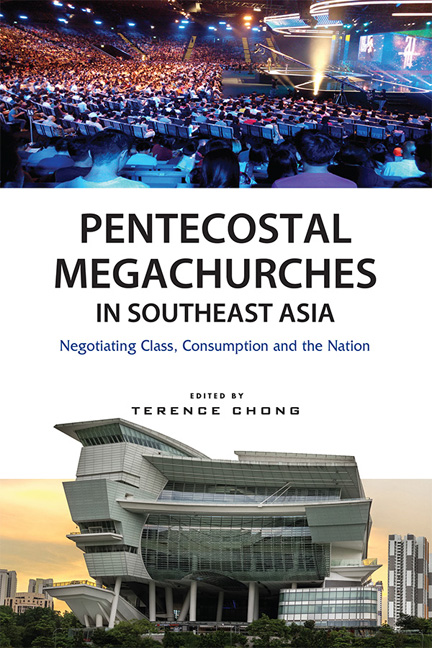Book contents
3 - Counting Souls: Numbers and Mega-worship in the Global Christian Network of Indonesia
from Indonesia
Published online by Cambridge University Press: 04 July 2018
Summary
Introduction
When riots broke out in Indonesia in 1998, I returned to my homeland and served in Mawar Sharon Church which has expanded into 30,000 members in this nation. Today, I'm entrusted to lead as Vice Head-Pastor of Mawar Sharon Church which [sic] oversees 70 local churches all around the country. At a young age, I am so fortunate to have personally witnessed more than 100,000 souls led to Christ. My passion is to fan into flame the fire of spiritual awakening everywhere, raising up pastors and leaders who are anointed in every field — especially in Asia. Moreover, I'm yearning to see every nation on the face of the earth experience a personal encounter with Jesus Christ.
Philip MantofaLarge numbers are important to Pentecostalism in particular because they are both the goal and the tool of proselytization. In sermons and media that advertise worship events, numbers serve as “objective indicators of progress” in the mission of the believers. Meanwhile, the large-scale worship and the construction of megachurches are an indispensable part of this growth project, be it in South Korea, the United States, or Indonesia. Yet, Indonesian megachurches have their own distinctive features. As I demonstrate below, Indonesia's prominence in the global Christian network has contributed to a vibrant rise of Christian presence and influence in the Global South; a rise made more noteworthy given that it is the world's largest Muslim-majority country. In fact, as Indonesian megachurches flourished in major cities, Indonesian Pentecostal leaders have been actively leading, and not merely following, some new global Christian networks.
In this chapter, I consider the cultural logic of counting souls in a multi-ethnic Indonesian Pentecostal congregation. This is one of the most dynamic and popular churches in Indonesia: Gereja Mawar Sharon (literally The Rose of Sharon Church, or GMS). As a youth-centred church that has been the most attractive congregation in Indonesian college towns, GMS began to position itself as an independent church in 2001 when it broke away from GBI (Gereja Bethel Injil, or The Bethel Gospel Church), the long-standing Indonesian Pentecostal Church. In terms of its membership, it has a strong representation of ethnic Chinese, particularly among those in the leadership strata. Yet, it is more accurate to see the congregations as multi-ethnic and, particularly, belonging to transnational, middle-class religious networks oriented towards a global Christian revival.
- Type
- Chapter
- Information
- Pentecostal Megachurches in Southeast AsiaNegotiating Class, Consumption and the Nation, pp. 47 - 68Publisher: ISEAS–Yusof Ishak InstitutePrint publication year: 2018

